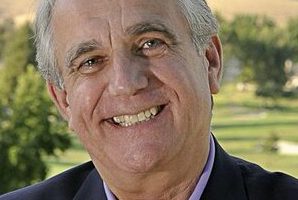Column: CEO Learnings
Book Review of “Quit” by Annie Duke.
In Quit: The Power of Knowing when to walk away, Annie Duke, a former professional poker player and decision-making expert, flips the conventional narrative on its head by making a powerful case for the strategic value of quitting. Far from the negative stigma often associated with quitting, Duke presents it as a valuable tool for optimizing life and business decisions, demonstrating that the ability to walk away at the right time can lead to greater success, productivity, and happiness.
Quitting vs Perseverance without discernment ?
The book’s central thesis is simple yet profound: quitting is not about giving up but about making informed, proactive choices that allow us to redirect our resources toward more promising opportunities. Duke challenges the cultural adulation of grit, showing how perseverance  without discernment often leads to wasted time, effort and resources.
without discernment often leads to wasted time, effort and resources.
Through compelling anecdotes and research, she illustrates how elite athletes, CEOs, and even comedians have leveraged the power of quitting to make room for more rewarding pursuits.
Cognitive Science and Behavioral Economics
Drawing on cognitive science and behavioral economics, Duke dissects why people struggle to quit, even when faced with overwhelming evidence that suggests it’s time to walk away.
She highlights common biases, such as the sunk cost fallacy and escalation of commitment, which trap us in unfruitful endeavors by convincing us that abandoning them would mean conceding defeat. Instead, Duke argues that clinging to something just because of what we’ve already invested is a recipe for missed opportunities and diminished progress.
Practical Strategies
The book’s strength lies in its practical strategies for overcoming these psychological barriers. Duke introduces the concept of “kill criteria”—predefined signals that indicate when it’s time to exit a venture or course of action. This strategy helps to remove the emotion from the decision, providing a rational framework for evaluating whether continued persistence is warranted. She also emphasizes the value of “quitting coaches”—trusted individuals who offer objective perspectives on whether to stick with or abandon a pursuit.
Moreover, Duke provides an insightful discussion on how quitting can actually speed up our journey toward our goals, as it allows us to pivot away from losing propositions and focus on endeavors that have a higher expected value.
For instance, she recounts stories of successful entrepreneurs who abandoned faltering startups to later found billion-dollar companies and athletes who retired at the peak of their careers to avoid debilitating injuries, thereby preserving long-term health and future prospects.
Self-worth
Quit also delves into the cultural and identity-based impediments to quitting. Duke points out that quitting can feel like a threat to one’s  identity, especially when an individual’s self-worth is tied to a particular role or achievement. She encourages readers to be cautious about allowing their identity to be defined by any single endeavor, advocating instead for flexibility and a willingness to evolve.
identity, especially when an individual’s self-worth is tied to a particular role or achievement. She encourages readers to be cautious about allowing their identity to be defined by any single endeavor, advocating instead for flexibility and a willingness to evolve.
Backed by scientific evidence
This book is more than just a treatise on quitting; it’s a manual for making smarter decisions under uncertainty. Duke’s advice is backed by scientific evidence, including insights from decision theory and neuroscience, making the case that the ability to quit intelligently can be learned and practiced. It’s a message that resonates across all domains of life—from business to personal relationships, and even to personal habits.
Ultimately, Quit is a thought-provoking read that urges us to reconsider our deeply ingrained biases about quitting and grit. The book equips readers with actionable tools to navigate complex decisions, reinforcing that knowing when to quit is not just a valuable skill but a crucial ingredient for success. Annie Duke doesn’t merely rehabilitate the image of quitting—she redefines it as a path to empowerment and growth.
Annie Duke served as a guest mentor on my radio show, The Mentors Radio, which is broadcast worldwide Saturdays on The Salem Radio Network and streamed simultaneously on iHeartRadio, and TuneIn Radio. This episode is now available on your favorite podcast platform or listen now at https://thementorsradio.com/379-world-champion-poker-player-annie-duke-talks-about-knowing-when-to-quit/ Subscribe while there so you do not miss any future shows!
RELATED RESOURCES:
- Quit: The Power of Knowing When to Walk Away, by Annie Duke
- World Champion Poker Player Annie Duke talks with Tom Loarie about Knowing When to Quit, on The Mentors Radio
View Articles Thomas M. Loarie is a popular host of The Mentors Radio Show, the founder and CEO of BryoLogyx Inc. (BryoLogyx.com), and a seasoned corporate... MORE »




You must be logged in to post a comment.